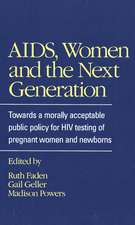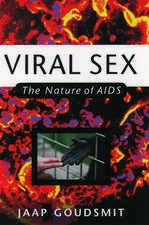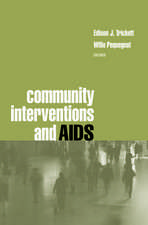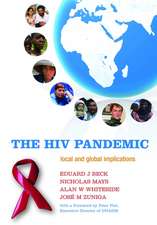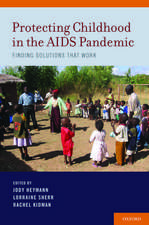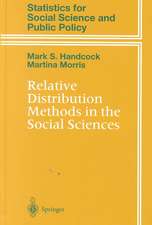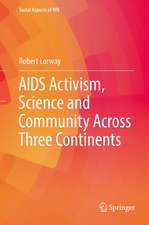Network Epidemiology: A Handbook for Survey Design and Data Collection: International Studies in Demography
Editat de Martina Morrisen Limba Engleză Hardback – 18 mar 2004
Din seria International Studies in Demography
- 31%
 Preț: 397.18 lei
Preț: 397.18 lei - 34%
 Preț: 1053.77 lei
Preț: 1053.77 lei - 34%
 Preț: 979.00 lei
Preț: 979.00 lei - 31%
 Preț: 356.01 lei
Preț: 356.01 lei - 34%
 Preț: 1508.94 lei
Preț: 1508.94 lei - 17%
 Preț: 529.19 lei
Preț: 529.19 lei - 31%
 Preț: 442.48 lei
Preț: 442.48 lei - 34%
 Preț: 1008.13 lei
Preț: 1008.13 lei - 31%
 Preț: 442.53 lei
Preț: 442.53 lei - 34%
 Preț: 746.75 lei
Preț: 746.75 lei - 31%
 Preț: 359.74 lei
Preț: 359.74 lei - 34%
 Preț: 1202.30 lei
Preț: 1202.30 lei - 34%
 Preț: 791.71 lei
Preț: 791.71 lei - 31%
 Preț: 361.50 lei
Preț: 361.50 lei - 34%
 Preț: 1114.23 lei
Preț: 1114.23 lei - 34%
 Preț: 1111.69 lei
Preț: 1111.69 lei - 30%
 Preț: 363.92 lei
Preț: 363.92 lei - 34%
 Preț: 672.71 lei
Preț: 672.71 lei - 34%
 Preț: 906.99 lei
Preț: 906.99 lei - 34%
 Preț: 1009.20 lei
Preț: 1009.20 lei - 22%
 Preț: 331.98 lei
Preț: 331.98 lei - 34%
 Preț: 835.88 lei
Preț: 835.88 lei - 34%
 Preț: 1289.63 lei
Preț: 1289.63 lei - 19%
 Preț: 263.93 lei
Preț: 263.93 lei - 31%
 Preț: 471.35 lei
Preț: 471.35 lei - 31%
 Preț: 375.31 lei
Preț: 375.31 lei - 31%
 Preț: 331.89 lei
Preț: 331.89 lei - 21%
 Preț: 320.90 lei
Preț: 320.90 lei
Preț: 1241.60 lei
Preț vechi: 1890.19 lei
-34% Nou
Puncte Express: 1862
Preț estimativ în valută:
237.57€ • 248.05$ • 196.63£
237.57€ • 248.05$ • 196.63£
Carte tipărită la comandă
Livrare economică 25-31 martie
Preluare comenzi: 021 569.72.76
Specificații
ISBN-13: 9780199269013
ISBN-10: 0199269017
Pagini: 252
Ilustrații: numerous figures & tables
Dimensiuni: 162 x 242 x 19 mm
Greutate: 0.53 kg
Editura: OUP OXFORD
Colecția OUP Oxford
Seria International Studies in Demography
Locul publicării:Oxford, United Kingdom
ISBN-10: 0199269017
Pagini: 252
Ilustrații: numerous figures & tables
Dimensiuni: 162 x 242 x 19 mm
Greutate: 0.53 kg
Editura: OUP OXFORD
Colecția OUP Oxford
Seria International Studies in Demography
Locul publicării:Oxford, United Kingdom
Notă biografică
Professor Martina Morris is Blumstein-Jordan Chair in the Departments of Sociology and Statistics at the University of Washington. She is also Director of the Center for Studies in Demography and Ecology, Director of the Sociobehavioural and Prevention Research Core at the Center for AIDS Research, and Co-Director of the Behaviour Research Training Program at the Center for AIDS Research. She has been Professor at Pennsylvania State University and Associate Professor at Columbia University.

